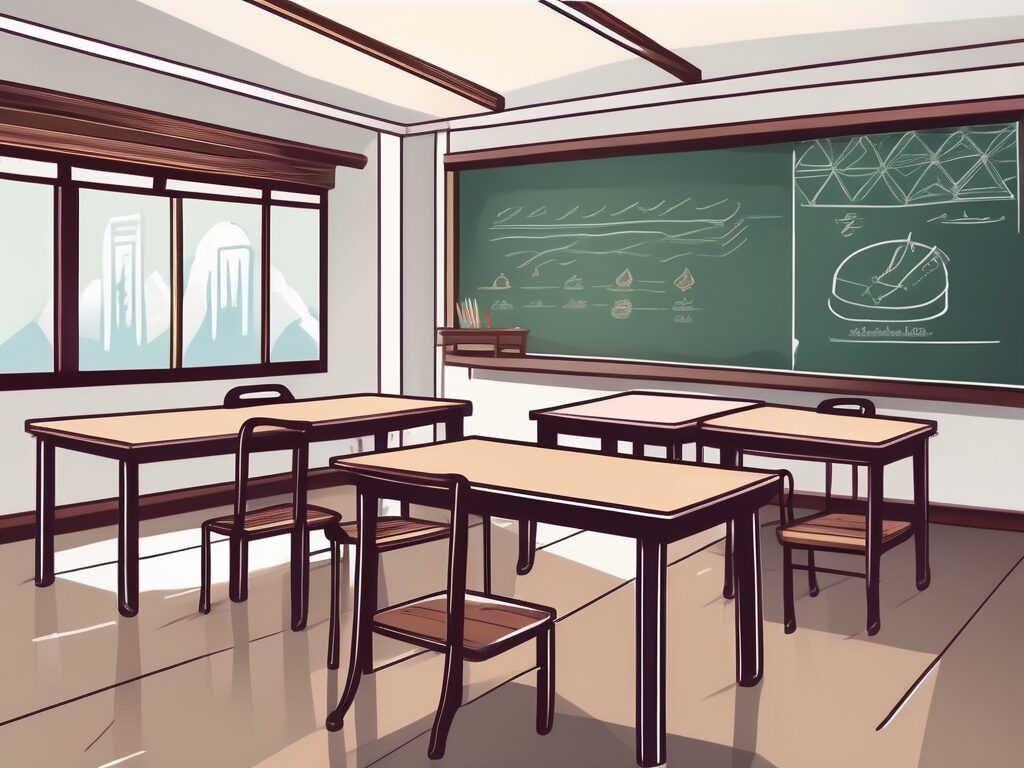html
How Long Is a School Day in Qatar? Discover the Schedule!
As the sun rises over the vibrant landscapes of Qatar, students across the nation prepare for another day of learning. But how long is a school day in Qatar? Understanding the school schedule is crucial for parents, educators, and students alike, as it shapes the educational experience and daily routines. In this blog post, we will explore the typical school day in Qatar, including start and end times, breaks, and the overall structure of the academic year. Whether you are a parent considering moving to Qatar, an educator looking to understand the local system, or simply curious about education in this dynamic country, this guide will provide you with all the insights you need.
The Structure of a School Day in Qatar
In Qatar, the school day typically begins early in the morning and ends in the afternoon. Most schools operate on a five-day week, from Sunday to Thursday, with Friday and Saturday designated as the weekend. The exact start and end times can vary depending on the school, but here’s a general overview:
- Start Time: Most schools in Qatar start between 7:00 AM and 8:00 AM.
- End Time: The school day usually concludes between 1:00 PM and 2:00 PM.
For example, a typical schedule might look like this:
- 7:30 AM – School starts
- 9:30 AM – Morning break
- 12:00 PM – Lunch break
- 1:30 PM – School ends
These times can vary based on the school’s curriculum, whether it follows the Qatari national curriculum or an international curriculum, such as the British or American systems.
Understanding Breaks and Lunch Hours
Breaks are an essential part of the school day, allowing students to recharge and socialise. In Qatar, schools typically incorporate two main breaks:
- Morning Break: Lasting around 15-30 minutes, this break usually occurs mid-morning, giving students a chance to grab a snack and relax.
- Lunch Break: This break is longer, often lasting up to an hour. Students can either bring their lunch from home or purchase meals from the school cafeteria.
It’s important to note that the length and timing of breaks can vary significantly between schools, especially those that follow different educational systems. For instance, international schools may have longer lunch breaks to accommodate extracurricular activities.
Academic Year and Holidays
The academic year in Qatar typically runs from September to June, with a few breaks throughout the year. Here’s a breakdown of the school calendar:
- Term 1: September to December
- Winter Break: Two weeks in late December to early January
- Term 2: January to March
- Spring Break: One week in March or April
- Term 3: April to June
- Summer Break: June to September
During the summer break, many families take the opportunity to travel, while some students may attend summer schools or camps to continue their education.
Extracurricular Activities and Their Importance
Extracurricular activities play a vital role in the educational experience in Qatar. Schools often offer a range of clubs and sports, which typically take place after school hours. These activities not only enhance students’ skills but also promote teamwork, leadership, and social interaction.
Examples of popular extracurricular activities include:
- Sports teams (football, basketball, swimming)
- Art and music clubs
- Debate and public speaking
- Science and technology clubs
Participating in these activities can significantly enrich a student’s school experience, providing opportunities for personal growth and development.
Challenges and Considerations for Parents
For parents considering enrolling their children in schools in Qatar, there are several factors to keep in mind:
- School Selection: With a variety of schools available, parents should research and visit schools to find the best fit for their child’s needs.
- Cultural Adaptation: Understanding the local culture and educational expectations is crucial for a smooth transition.
- Language of Instruction: Many international schools offer instruction in English, but it’s essential to confirm the language of teaching, especially for non-native speakers.
By considering these factors, parents can make informed decisions that will benefit their children’s educational journey in Qatar.
Conclusion
Understanding the school day in Qatar is essential for parents, educators, and students alike. With a structured schedule that includes breaks and extracurricular activities, students have the opportunity to thrive academically and socially. As you navigate the educational landscape in Qatar, remember to consider the various factors that can influence your child’s experience.
Empower Your Teaching Career with IPGCE
As we strive for a more inclusive education system in Malaysia, the role of qualified and well-trained educators becomes increasingly crucial. IPGCE is dedicated to supporting teachers in their professional journey, offering the International Postgraduate Certificate in Education (iPGCE) to enhance qualifications and open doors to international teaching opportunities. With our program, you can expect a significant increase in interview callbacks, promotion rates, and salary. Plus, you’ll join a global network of educators, gain a deeper understanding of international curricula, and enjoy the flexibility of online study. Don’t let inadequate credentials or isolation hold you back. Join the UK’s #1 Teacher Training Course today and take a decisive step towards a fulfilling career in inclusive education.
For more information on education in Qatar, check out our related articles on The Qatari Education System and International Schools in Qatar.

